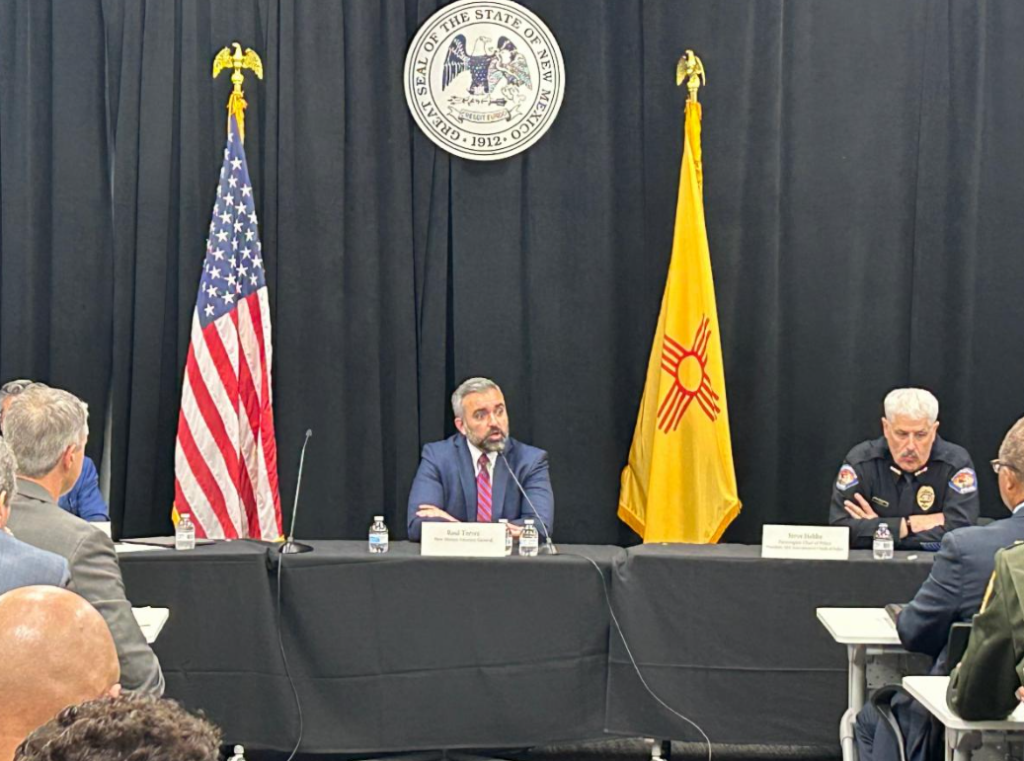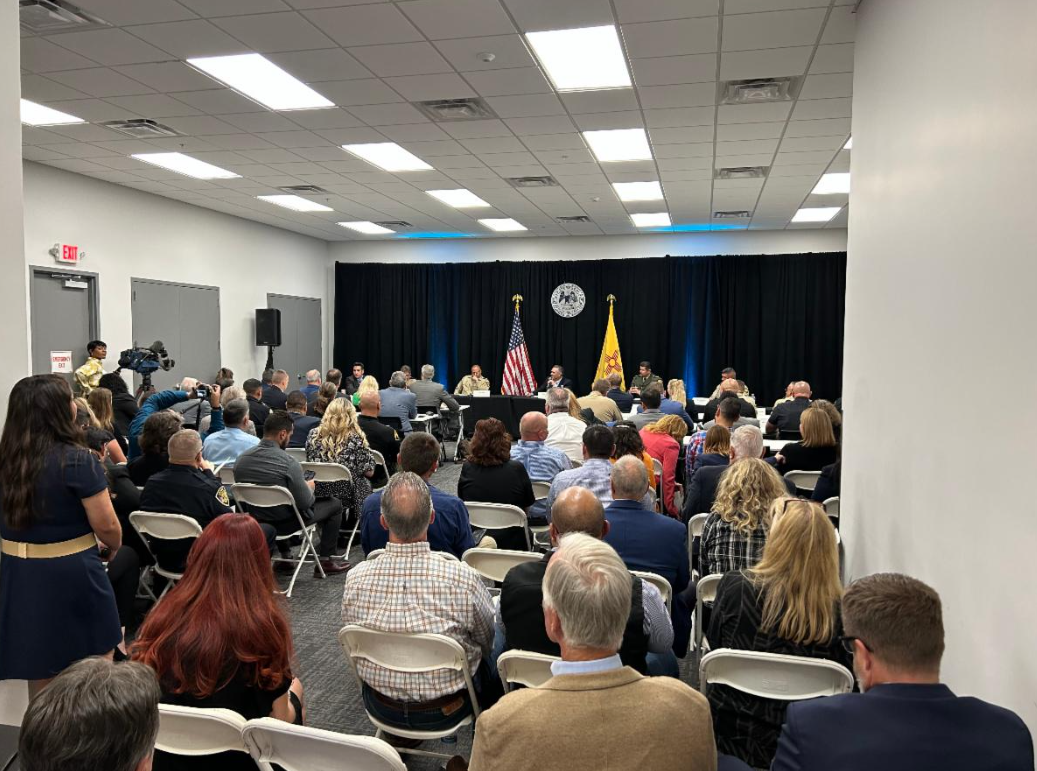On Tuesday, Attorney General Raúl Torrez held a press conference to talk about violent crime, gun violence and policy solutions that could make a difference. He said the event’s primary purpose was to “elevate the voice of front-line police and prosecutors” in policymaking.
“I am profoundly upset and, frankly, angry about the lack of progress that has been made, specifically with regard to gun violence,” Torrez said in opening the event. That’s because, he said, he’s not just the Attorney General of the State of New Mexico – he also calls this community home.
Torrez was joined by nearly two dozen law enforcement leaders and prosecutors from across the state who shared compelling stories of their own experiences with gun violence. Many described frustration with a system that seems unwilling to listen to them or even to victims, despite the fact they’re the ones most directly impacted by violent crime and gun violence. And while they said they may not always agree on some specifics, they’re united in their willingness to engage on the issues – and in their belief in the need for urgent action.
Torrez wrapped up the event by noting that ongoing conversations around addressing crime would be difficult but are essential to building a community that is peaceful and safe.
Read the Albuquerque Journal’s coverage of the event here.
During the rest of the afternoon, panels of law enforcement and prosecutors told their stories. Sheriffs and police chiefs from across the state discussed what they see as root causes of New Mexico’s continued struggles with violent crime, like the availability and affordability of drugs and guns. And, there are other disturbing trends that don’t have simple answers, like younger and younger offenders, increasingly violent domestic disputes, and altercations that escalate more rapidly than ever, sometimes leaving no time at all to talk calmly with suspects.
District attorneys and prosecutors talked about a shift in public rhetoric that seems to regard them as heartless lawyers just looking for a conviction, where they were once perceived as public servants working for the public good. They also warned against legislative proposals that threaten to erode important justice institutions like the grand jury or put suspects’ rights above victims’.
So how do we fix things? It won’t be easy, Torrez said.
“This is not the kind of thing that has one solution,” he said. “We’re going to have to attack the problem of public safety in general and gun violence in particular, with a variety of strategies that borrow from the experiences of law enforcement professionals, not just in the state system but in the federal system, too.”
But, he added: “There are solutions – and there are solutions right in front of our face.”
One solution is reworking the state criminal justice system to mirror the federal system in terms of detainment and sentencing, through better policies around pre-trial detention and more prescriptive penalties for violent crime. A boost in police recruitment probably requires better benefits and resources for officers – and an effective way to get the word out to younger people who might consider it as a career. And, investments in technology, especially in smaller communities with fewer resources, could go a long way in prosecuting and even preventing crime.
Throughout the conversations, panelists highlighted the importance of communication and collaboration, both between law enforcement agencies and between leaders in the justice system and policy makers.
Bernalillo County DA Sam Bregman said partnerships within the law enforcement community are stronger than ever. “Law enforcement in this community is working together as well as I think they’ve ever worked together,” he said. “I really believe there’s a complete, concerted effort to do something about this crime problem in Albuquerque.” But San Juan County District Attorney Rick Tedrow said state policymakers should work harder to get law enforcement input, especially since police and prosecutors are far too busy to effectively engage on legislation once it’s moving. “Where’s the outreach?” he said.
Torrez said the proposals discussed and agreed upon by the group would be drawn up in a report to share with the Legislature and the governor ahead of the 2024 legislative session.





